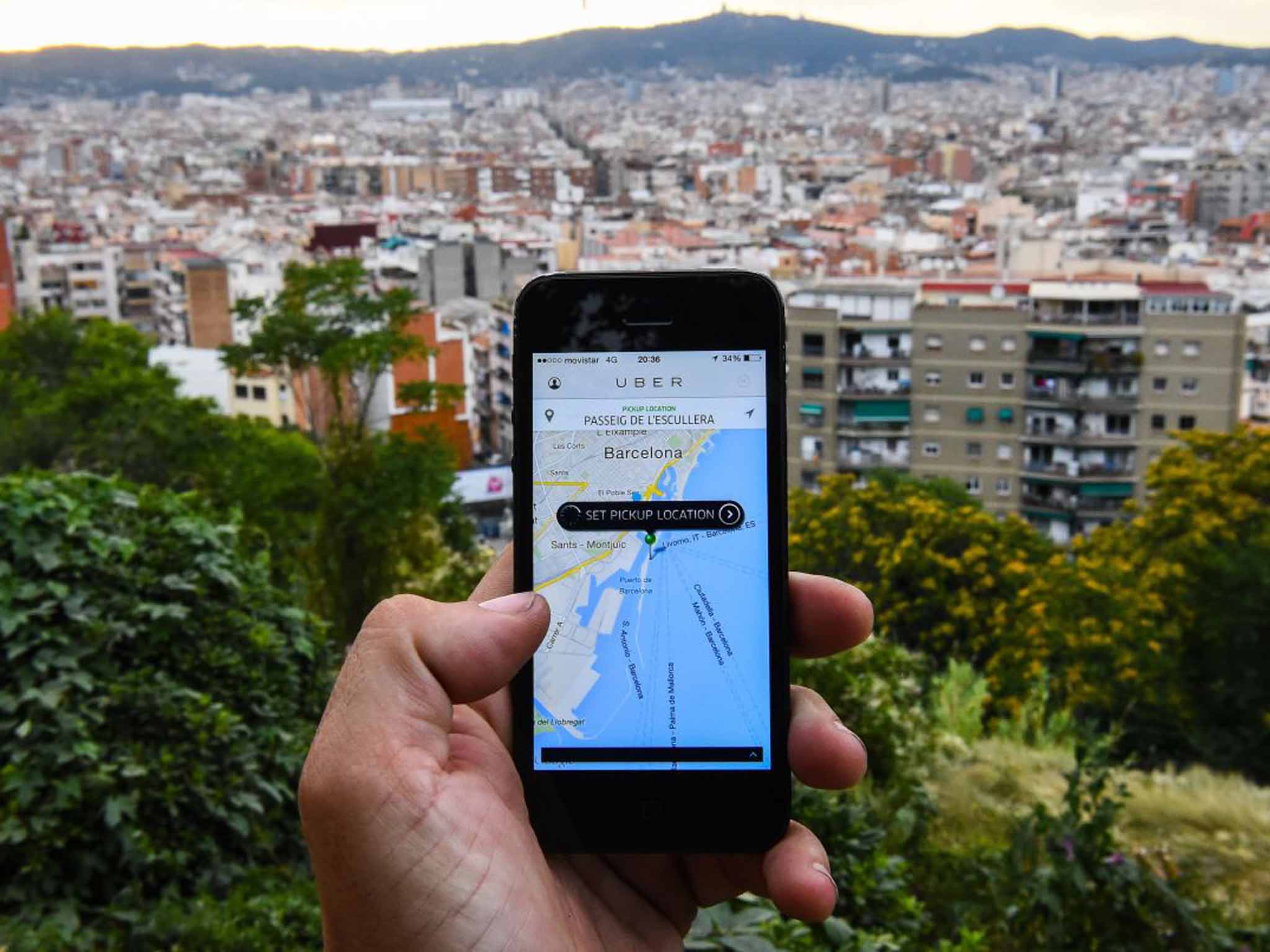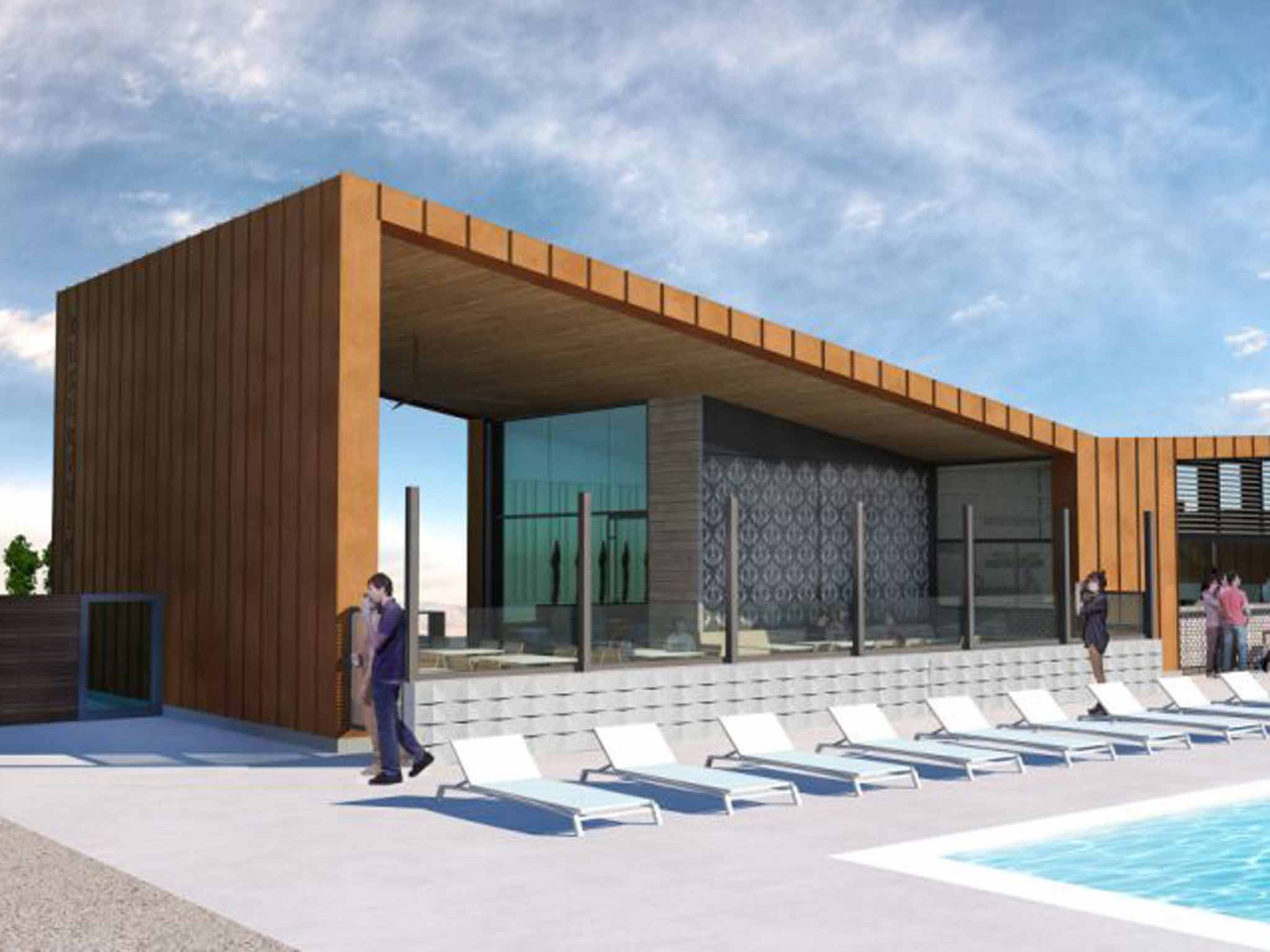Smart technology that’s enhancing holidays: The latest in-room tech and travel apps
Smart technology is enhancing how we see the world, from airline apps to hotel services. James Ellis taps into the latest innovations to see where it's all going

Your support helps us to tell the story
From reproductive rights to climate change to Big Tech, The Independent is on the ground when the story is developing. Whether it's investigating the financials of Elon Musk's pro-Trump PAC or producing our latest documentary, 'The A Word', which shines a light on the American women fighting for reproductive rights, we know how important it is to parse out the facts from the messaging.
At such a critical moment in US history, we need reporters on the ground. Your donation allows us to keep sending journalists to speak to both sides of the story.
The Independent is trusted by Americans across the entire political spectrum. And unlike many other quality news outlets, we choose not to lock Americans out of our reporting and analysis with paywalls. We believe quality journalism should be available to everyone, paid for by those who can afford it.
Your support makes all the difference.Imagine a hotel room so smart that it transmits 5G wi-fi through its lighting system, allows you to charge your phone by putting it on a desk and has a coffee-maker that remembers what your last brew was like, before serving up another exactly the same the next time you need a caffeine fix.
While it might sound like something from an episode of Futurama, it's the kind of technology already being tested by hotels and holiday companies around the world as they aim to make the way we travel better in 2016.
“Travellers are getting smarter in the way they search, book and experience travel,” says Kevin May of travel tech website Tnooz. “In previous years, travel companies often seemed scared of their customers being armed with self-gained information and expertise, mostly gleaned from the web – but over time this has helped them refine and improve their products and services.”
Homely hotel chain Best Western showcased “Li-Fi” technology earlier this year, and while a data stream via light in the visual spectrum might not yet be commercially available, hotels are leading the new-tech travel charge.
“We've seen an increase in the number of 'smart' hotels entering the market in the past year, from the rising number of design-led, high rise hotels in China to pioneering tech hotels found in chains across the US,” says Denise Bartlett of hotel search engine Trivago (trivago.co.uk).
Picking up from where smart hotel chains such as Yotel (yotel.com) left off is Arrive (arrivehotels.com), a boutique property in Palm Springs owned by Facebook millionaire Ezra Callahan, slated to open at the end of January. While boss Mark Zuckerberg might be giving billions to charity, the social site's sixth-ever employee is splashing his share of the cash on the hotel's high-end finish. All rooms will be equipped with Netflix and Hulu streaming facilities, and guests will be able to communicate with staff via SMS.
Callahan is keen not to call the hotel hi-tech though: “We believe we're innovative, but that has to do with our overall approach to the guest experience and is not something that's rooted in anything technological,” he says.
“We will utilise technology in smart ways to simplify the guest experience and to provide a more home-like feel to our property, but we will look to avoid adopting technology for technology's sake or utilising hi-tech systems, apps or other systems that may complicate the guest experience more than they enhance it.”
Closer to home, you don't even have to travel to visit the NH Collection Eurobuilding hotel (nh-collection.com) in Madrid, thanks to 3D holographic technology. The hotel, which also has four “Living Lab” rooms that allow visitors to try out the latest in-room tech, is the first in the world to be able to project life-size holographic 3D images of people to talk to live, no matter where they are in the world. Actor Hugh Jackman and director Neill Blomkamp recently used the tech to promote their film, Chappie, at a press conference in the hotel, despite being at a sister property in Berlin.

The travel world has been talking about such immersive technology for a number of years, and 2016 could be the year it finally catches on. Marriott (marriott.co.uk) has tested a “VRoom Service” in two of its New York and London hotels that allows guests to order in-room virtual experiences using Samsung Gear VR headsets, and airlines are not far behind. Qantas (qantas.com) has been trialling the same technology on flights and in its airport lounges, while Air New Zealand has also been dipping its toe in virtual worlds at the Auckland Museum's Future of Flying exhibition, which celebrates the airline's 75th anniversary this year (airnewzealand.co.uk).
Thomson Airways (thomson.co.uk/flight), meanwhile, has come up with a more prosaic, but perhaps practical use of technology, equipping its 2,600 cabin crew with iPads that link to staff members in destination resorts, meaning fliers can get resort recommendations (and be sold excursions) while in the air. “[We're] personalising our service and modernising the customer's experience during every step of their journey, from booking to beach,” says the company's Jeremy Osborne of the initiative.
The smarter travel tech battle extends beyond land and air too. Upmarket cruise line Azamara (azamaraclubcruises.co.uk) also offers 360-degree VR experiences with its own Oculus Rift equipment, and companies such as Royal Caribbean (royalcaribbean.co.uk) and MSC Cruises (msccruises.co.uk) are starting to offer smart wristbands to their guests. In an echo of technology first introduced at Disney parks last year, the bands can act as room keys, as well as storing credit or debit card details for online purchases.
“To attract a new audience, and deliver a more streamlined, and ultimately enjoyable, travel experience, cruise lines are utilising modern on-board technology,” says Adam Coulter, of review site Cruise Critic (cruisecritic.co.uk).
“[Royal Caribbean] guests can also download the line's Royal iQ app to mobile devices to track luggage. The app can also be used to book excursions, make dinner reservations and pre-book onboard activities.”
The flipside of the coin is all the websites and apps clamouring to use hi-tech to offer low-cost travel. SelfConnect (selfconnect.flights) is one such site, claiming to be the first dedicated search engine to combine both scheduled and low-cost airlines into one fare. To take away the stress of connecting between the two, it even offers guaranteed transfers between the flights. The site can currently tie in airports from around the UK to 14 South American countries, but hopes to extend the network as more partner airlines come on board over the next year.
Another relatively new site causing a stir is GoEuro (goeuro.co.uk). It compares European flights with coach and rail prices for the same journey. Results can be filtered to show the cheapest and fastest options, while a third filter takes into account price, duration and departure time – naturally, it's called the “smarter” option.
Click here to view the latest travel offers, with Independent Holidays.
Join our commenting forum
Join thought-provoking conversations, follow other Independent readers and see their replies
Comments